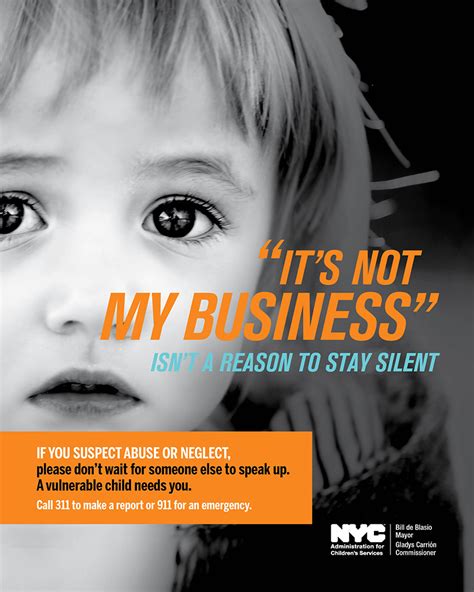Introduction:

Public awareness campaigns are critical in educating the public about important issues and motivating them to take action. These campaigns use various channels to convey messages, raise awareness, and promote positive behavior change. In recent years, there has been a surge in public awareness campaigns addressing a wide range of societal concerns.
Common Public Awareness Campaigns:
1. Health Awareness Campaigns:
- Cancer Awareness Campaigns: Aim to educate the public about cancer prevention, detection, and treatment. According to the World Health Organization (WHO), cancer is the leading cause of death worldwide, with an estimated 10 million deaths annually.
- Heart Health Campaigns: Promote healthy lifestyle choices to prevent cardiovascular diseases. The American Heart Association reports that heart disease is the leading cause of death in the United States, claiming over 650,000 lives each year.
- HIV/AIDS Awareness Campaigns: Educate about HIV transmission, prevention, and treatment. The Joint United Nations Programme on HIV/AIDS (UNAIDS) estimates that approximately 38 million people globally were living with HIV as of 2021.
2. Safety Awareness Campaigns:
- Road Safety Campaigns: Aim to reduce traffic accidents and fatalities. The National Highway Traffic Safety Administration (NHTSA) reports that over 42,000 people were killed in traffic crashes in the United States in 2021.
- Fire Safety Campaigns: Promote fire prevention and safety practices. The National Fire Protection Association (NFPA) estimates that over 3,300 civilian fire deaths occurred in the United States in 2021.
- Emergency Preparedness Campaigns: Educate the public on how to prepare for and respond to natural disasters and emergencies. The Federal Emergency Management Agency (FEMA) estimates that over 1,000 major disasters have been declared in the United States since 1950.
3. Environmental Awareness Campaigns:
- Climate Change Campaigns: Promote awareness about climate change and its impacts. The Intergovernmental Panel on Climate Change (IPCC) reports that global temperatures are projected to increase by 1.5-2°C by 2050, with significant implications for human societies and ecosystems.
- Water Conservation Campaigns: Aim to reduce water consumption and promote sustainable water management practices. The World Water Council estimates that over 2.2 billion people lack access to safely managed drinking water services globally.
- Waste Reduction Campaigns: Educate the public about waste reduction and recycling practices. The Environmental Protection Agency (EPA) estimates that over 250 million tons of municipal solid waste is generated in the United States annually.
4. Social Awareness Campaigns:
- Anti-Racism Campaigns: Aim to raise awareness about racial inequality and promote inclusivity. The United Nations Human Rights Council reports that racism continues to be a systemic issue in societies worldwide.
- Gender Equality Campaigns: Promote gender equality and address discrimination against women and girls. The United Nations Population Fund (UNFPA) estimates that over 650 million women and girls globally have experienced physical or sexual violence.
- Mental Health Awareness Campaigns: Raise awareness about mental health issues and reduce stigma. The World Health Organization (WHO) estimates that over 264 million people globally suffer from depression, a common mental health disorder.
5. Consumer Awareness Campaigns:
- Financial Literacy Campaigns: Educate the public about personal finance and responsible spending. The Financial Industry Regulatory Authority (FINRA) reports that over 50% of Americans have low financial literacy.
- Product Recalls and Safety Alerts: Inform the public about defective or hazardous products. The Consumer Product Safety Commission (CPSC) estimates that over 50,000 product recalls are issued annually in the United States.
- Data Privacy and Protection Campaigns: Promote awareness about data privacy rights and how to protect personal information online. The Pew Research Center reports that over 80% of Americans are concerned about the privacy of their data online.
Benefits of Public Awareness Campaigns:
- Increase Knowledge and Understanding: Public awareness campaigns effectively convey information and raise awareness about important societal issues, empowering individuals with knowledge and understanding.
- Promote Behavior Change: Campaigns can persuade individuals to change their behaviors, such as adopting healthier habits, adhering to safety regulations, or reducing their environmental impact.
- Mobilize Support and Action: Awareness campaigns galvanize support for causes and mobilize individuals to take action, such as volunteering, donating, or advocating for policy change.
- Foster Social Cohesion: Public awareness campaigns can create a sense of community and foster social cohesion by bringing individuals together around shared values and goals.
- Hold Decision-Makers Accountable: Campaigns can influence public opinion and hold decision-makers accountable for addressing societal issues, promoting transparency and accountability.
Challenges and Common Mistakes to Avoid:
- Lack of Audience Research: Failing to understand the target audience and their needs can result in ineffective campaigns.
- Ineffective Messaging: Using confusing or unengaging language, visuals, or delivery methods can hinder message recall and impact.
- Short-Term Focus: Designing campaigns with a short-term mindset can limit their long-term impact and sustainability.
- Lack of Collaboration: Failing to collaborate with other stakeholders, including community organizations, government agencies, and media outlets, can weaken campaign effectiveness.
- Ignoring Evaluation and Measurement: Not measuring the impact of campaigns can hinder improvement and future effectiveness.
Tables:
| Health Awareness Campaigns | Impact |
|---|---|
| Cancer Awareness Campaigns | Reduced smoking rates |
| Heart Health Campaigns | Lowered cholesterol levels and improved heart health |
| HIV/AIDS Awareness Campaigns | Increased condom use and reduced HIV transmission |
| Safety Awareness Campaigns | Impact |
|---|---|
| Road Safety Campaigns | Decreased traffic fatalities and injuries |
| Fire Safety Campaigns | Reduced fire-related deaths and property damage |
| Emergency Preparedness Campaigns | Increased preparedness and response capabilities |
| Environmental Awareness Campaigns | Impact |
|---|---|
| Climate Change Campaigns | Raised public awareness and influenced policy decisions |
| Water Conservation Campaigns | Reduced water consumption and improved water management |
| Waste Reduction Campaigns | Increased recycling rates and reduced waste output |
| Social Awareness Campaigns | Impact |
|---|---|
| Anti-Racism Campaigns | Improved racial understanding and reduced prejudice |
| Gender Equality Campaigns | Increased women’s empowerment and participation in society |
| Mental Health Awareness Campaigns | Reduced mental health stigma and increased access to services |



